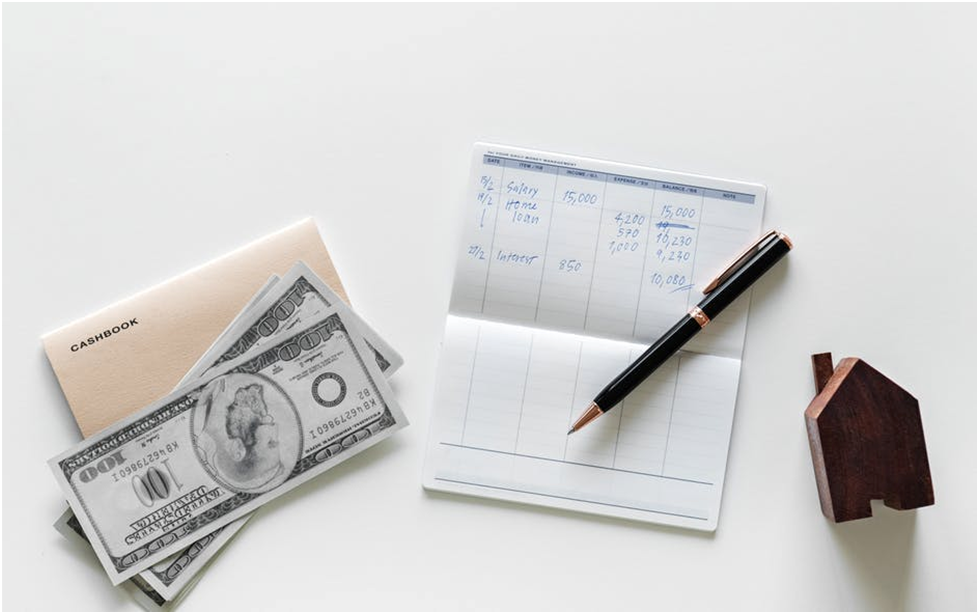Americans owe a collective $13.15 trillion in household debt — an all-time high according to the Federal Reserve Bank of New York. If you’re one of the countless homeowners struggling with debts of your own, your challenge is finding a way to climb out of the hole you’ve dug. The solution doesn’t come easily to everyone, but you can make your job less complicated by following these five tips. Though simple, they can help you face your finances and improve your financial well-being.

- Make a household budget
A budget shows you powerful insights into your financial health. It helps you identify your financial capabilities, tracking not only your income but your expenses, too. When you back-date your budget to include expenses from several months past, you can also spot categories of spending that eat up most of your paycheck.
Depending on what these categories are, you can reduce or eliminate them entirely by making changes to your lifestyle. Something like rent will be difficult to lower. Your landlord will only ever raise your rent, and the physical act of moving to a cheaper neighborhood could be expensive. However, something like entertainment or food is flexible. You can go out less and eat in more, using a variety of tricks to keep your grocery bill low.
- Pay bills on payday
Most bills fall on the same date of each month, so you always know when you owe money for rent, utilities, and your cell phone. You’re even more likely to remember your paydays, though these usually occur bi-weekly. Rarely do your payday and your bills’ due date match up.
Though this variance won’t matter for some, it can impact those who don’t pay close attention to their finances. If your payday falls on a day that’s weeks before a bill is due, it’s easy to spend money you’ve allocated for this bill on something else. If your finances are tight, you may not have the money you need once the due date finally arrives.
You can solve this by paying your bills first on your payday. If paying them in their entirety is too much for your finances to handle, reserve a portion of your paycheck and transfer it to a separate account to prevent you from using it on anything else. If you still can’t pay the entire bill after several paychecks, make sure you at least meet the minimum payments at the deadline.
- Develop a “just in case” fund
Though paying bills should take precedence, don’t ignore your savings. Healthy finances prepare for the future, whether that’s in retirement or when you face an emergency household repair. While a pension or 401(k) can help with your retirement, a “just in case” fund can help you with unexpected repairs and bills that aren’t in your budget.
At first, developing savings while paying your bills may be a challenge. Splitting your financial attention can also be a thankless task, especially when you’re hit with that repair before you’ve developed a sizeable “just in case” fund. You have options like MoneyKey that can help bridge the gap between this responsibility and what little savings you do have. They offer fast-acting online payday loans you can apply for at anytime, giving you the financial agency to take on these bills as soon as they arrive. Though they shouldn’t be a common feature in your budget when paying regular bills, they are a practical way to tackle unexpected expenses while you’re developing a “just in case” fund of your own.
- Prioritize your debt
If you’re like most Americans, this wouldn’t be the first time you’ve borrowed money. At the very least, you’ll have a couple of credit cards in your wallet. Then there are student loans, auto leases, lines of credit, and mortgages. Once you add up all that you owe, your negative net worth can be overwhelming.
Your financial well-being relies on your ability to pay down these debts as quickly as possible. Financial experts disagree on the best way to pay off your debt. While some suggest tackling the biggest debt first, like your student loan, others recommend focusing on those with the highest interest, like your payday loan.
- Speak with an expert
How you prioritize your debt depends on your financial situation. The answer may not be obvious to you when you’re in the thick of it all. A financial advisor has a professional perspective on your finances, and they can help you evaluate your position properly.
They’re an amazing resource for anyone facing significant debt, but they can help anyone with unanswered questions regarding financial products, services, and techniques. Not only can they help devise a practical debt repayment schedule, but they can also discuss the advantageous of refinancing, installment loans, automatic investment apps, and other services.
These tips are most effective when followed together
Though each of these tricks promises to improve your financial standing on their own, they’re at their most valuable when you use them as a set. Integrate all five tips into your routine, and you’ll improve your chances of facing your debts and developing financial wellness.
